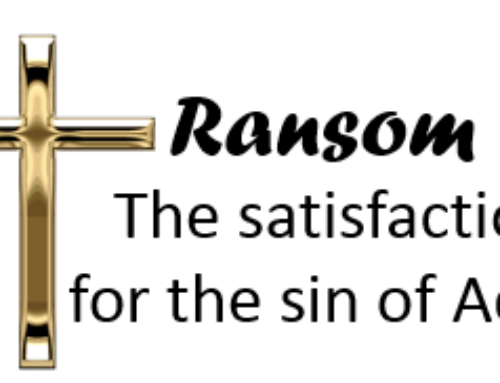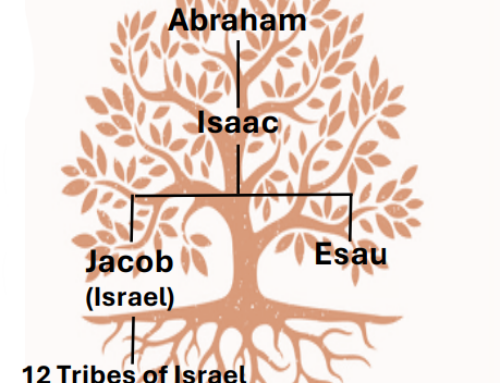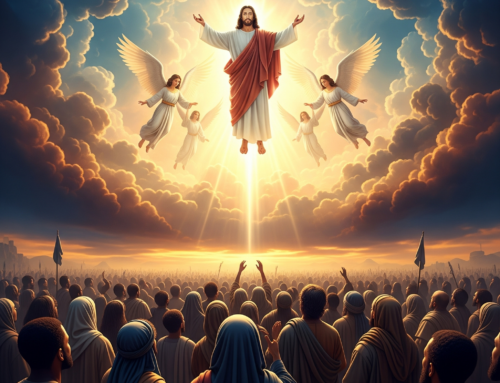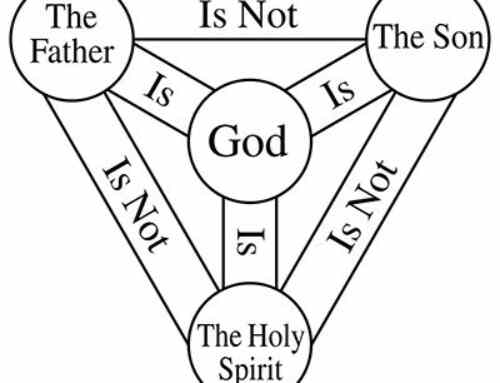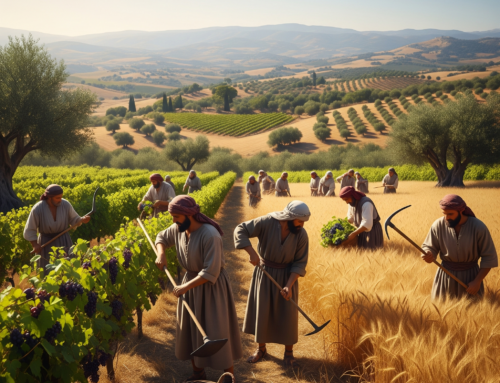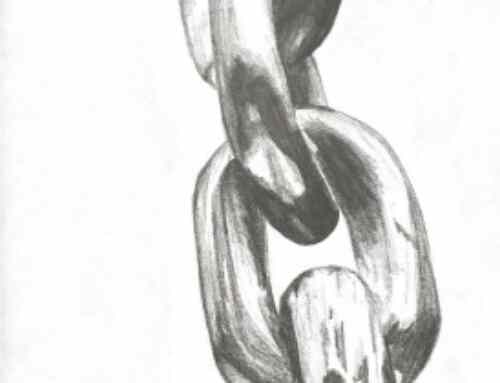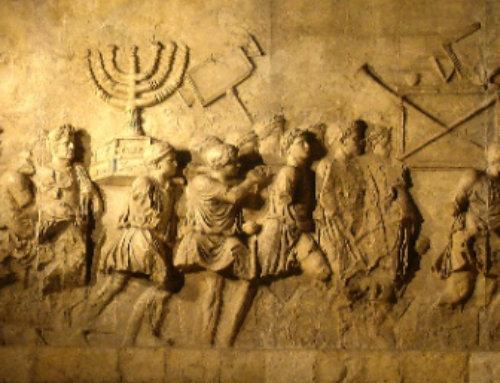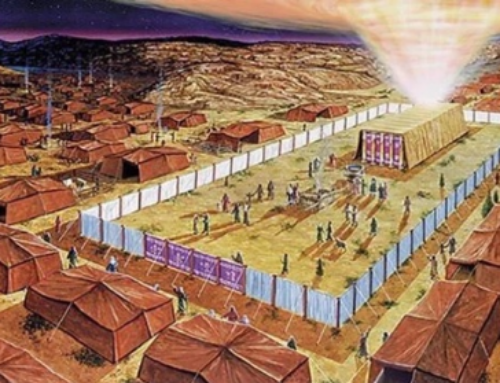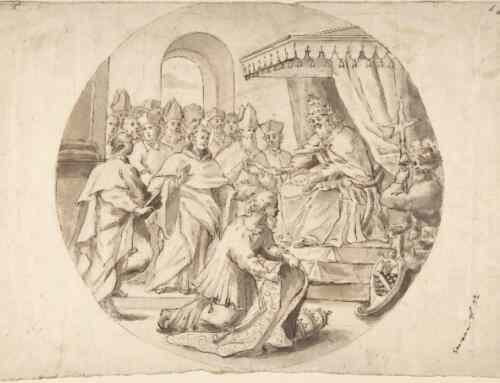The Truth About Hell
Goal of this Study: WHAT is ‘hell’? It is a place of eternal torture? WHERE is it? WHO is in hell?
WHY was Jesus “in hell” parts of three days?
WHY are millions of good people in hell right now? WHO leaves hell and HOW?
Additional references: Studies in the Scriptures Vol 5, Chap. 12; Reprint 1498 and 2597
General understanding of the word “hell”
- In almost all Christian religions, “hell” is generally understood to be a fiery place of punishment, where immortal, undying souls are tormented forever because of sins committed in this life.
- Oxford Dictionary: “A place regarded in various religions as a spiritual realm of evil and suffering, often traditionally depicted as a place of perpetual fire beneath the earth where the wicked are punished after death.”
- “In old English usage…the word “hell” simply meant to conceal, to hide, to cover; hence the concealed, hidden or covered place.” Reprint 2598
 Biblical use of the word ‘hell’
Biblical use of the word ‘hell’
- Hell is translated and used differently in various scriptures depending on
the Bible translation. For this study, we will use the King James Version (kjv)
unless otherwise indicated. - The word appears 54 times in the Bible: 31 times in the Old Testament and 23 times in the New Testament.
- Using Strong’s Exhaustive Concordance, let’s look at the original words (Greek/Hebrew) translated “hell”:
- Each Hebrew or Greek word might be interpreted differently within
 the same translation (for example, the KJV translating the same Hebrew word into multiple English words), depending on the context and bias of the translators. Of course, there are variations across different translations as well (the KJV might use a different English word compared to NASB).
the same translation (for example, the KJV translating the same Hebrew word into multiple English words), depending on the context and bias of the translators. Of course, there are variations across different translations as well (the KJV might use a different English word compared to NASB).
“SHEOL” in the Old Testament
The Hebrew word sheol appears in the Old Testament 65 times. It is translated into English as:
- HELL: 31 times
- GRAVE: 31 times
- PIT: 3 times (Numbers 16:30, 33 and Job 17:16)
What is the real meaning of the word sheol? Bible translators have had difficulty with this word, especially depending on if a ‘good’ person or ‘bad’ person is described.
Describing Jacob: Here the word “grave” is the Hebrew word sheol. Jacob knew he would die and go to sheol.
- Genesis 37:35 “And all his sons and all his daughters rose up to comfort him…and he [Jacob] said, For I will go down into the grave (sheol) unto my son mourning…”
Describing the good king of Judah, Hezekiah:
- Isaiah 38:10 “I said in the cutting off of my days, I shall go to the gates of the grave (sheol): I am deprived of the residue of my years.”
By a miracle, his life had been unexpectedly prolonged. He is describing his thoughts during the time of his sickness, when he expected that he would shortly die. The translators were careful not to use the word “hell” here as a translation of sheol, for to do so would have aroused questions in the minds of many readers as to why one so good as Hezekiah should be expecting to go to a place of torment when he died.
Describing the wicked:
- Psalm 9:17 “The wicked shall be turned into hell (sheol), and all the nations that forget God.”
 Translators often used “hell” when referring to a wicked person and “grave” or “pit” (or they leave sheol untranslated) when referring to a good, faithful person.
Translators often used “hell” when referring to a wicked person and “grave” or “pit” (or they leave sheol untranslated) when referring to a good, faithful person.
So, what is the real meaning of “SHEOL”?
Here’s a verse where we find the answer!
- Isaiah 38:18 “For the grave (sheol) cannot praise thee, death can not celebrate thee: they that go down into the pit (bôr) [meaning cistern, dungeon, well] cannot hope for Thy truth.”
These are the words of Hezekiah, still speaking of his severe illness, he expresses appreciation that he is still alive. He speaks of death as being synonymous with sheol, and says that while the living can praise the Lord, death and sheol cannot; meaning those who die and are in sheol cannot praise Him. Had the translators rendered sheol by the word “hell” in this text, many would have been led to wonder what kind of a place hell might be.
The word sheol here was interpreted and translated as the “grave.” From this verse, we see that “grave” is the same thing as the state of death, also described as the “pit.”
Hell = Grave or pit or the “hidden state” of burial
- Job 14:13 (kjv) “O that thou wouldest hide me in the grave (sheol), that thou wouldest keep me secret, until thy wrath be past, that thou wouldest appoint me a set time, and remember me!”
Here we see another righteous man of God, praying to go to sheol (hell, grave).
- Psalm 115:17 “The dead praise not the LORD, neither any that go down into silence.”
Instead of groans and shouting, the place where the dead are is described in a condition of “silence.”
- Psalms 88:11, 12 “Shall thy lovingkindness be declared in the grave? [a different Hebrew word,
Strong’s #6913 qeḇer] or thy faithfulness in destruction? …and thy righteousness in the land of forgetfulness?”
Instead of regret or suffering, the “grave” is described as a place or condition of “forgetfulness.”
- Ecclesiastes 9:10 (kjv) “…for there is no work, nor device, nor knowledge, nor wisdom, in the grave (sheol),
wither thou goest.” This is not a state of being for live people.
Hell = the state of death
“HADES” in the New Testament
The first Greek word for hell (hades), appears in the New Testament 10 times.
 “In the New Testament the Greek word hades is the exact equivalent of the Hebrew word sheol. We have the most absolute proof of this from the fact that the apostles, in quotations from the Old Testament, render sheol by the word hades.” Vol. 5, p.375
“In the New Testament the Greek word hades is the exact equivalent of the Hebrew word sheol. We have the most absolute proof of this from the fact that the apostles, in quotations from the Old Testament, render sheol by the word hades.” Vol. 5, p.375
An undeniable link between Old and New Testament definitions:
- Acts 2:27 “Because thou wilt not leave my soul in hell (hades); neither wilt thou suffer thine Holy One to see corruption.”
- Psalm 16:10 “For thou wilt not leave my soul in hell (sheol);
neither wilt thou suffer thine Holy One to see corruption.”
When quoting the Old Testament in the New Testament, hades is the word for sheol, so we know hades = sheol.
Was Jesus really in hell?
Yes, Jesus was in the grave (hades/sheol) for parts of three days until he was resurrected by God.
- Acts 2:31 “…that his [Jesus’] soul was not left in hell (hades)…”
Jesus received his resurrection within just three days. However, the rest of mankind must await the full return of Jesus to receive their raising from the dead.
- Revelation 1:18 (kjv) “I [Jesus] am he that liveth, and was dead; and, behold, I am alive for evermore, …and have the keys of hell (hades) and of death.”
- “keys of hell”: the authority over the prison of the grave; refers to those who Jesus will resurrect from their graves.
- “keys of death”: the authority over the living “dead” people of the world; refers to those who are alive at the time when Jesus will start the resurrection work with mankind. From God’s standpoint, all mankind is dead. See Luke 9:60 “let the dead bury their dead…”
- Acts 10:42 “..that this is the One who has been appointed by God as Judge of the living and the dead.” This verse confirms to us that Jesus has this authority.
 How can a city be brought down to hell?
How can a city be brought down to hell?
- Matthew 11:23 “And thou, Capernaum, which art exalted unto heaven, shalt be brought down to hell (hades)…”
The city of Capernaum was buried for hundreds of years in accordance with Jesus’ words of prophecy. In 1838, American explorer Edward Robinson discovered the ruins of this ancient city. Hell/hades simply means the “state of death” or “the condition of burial” as in the Hebrew word sheol.
- Revelation 20:13, 14 “And the sea gave up the dead… death and hell (hades) delivered up the dead…And death and hell were cast into the lake of fire. This is the second death. And death and hell (hades) were cast into the lake of fire.”
This scripture teaches us that all who are in hell will come out! It speaks of the end or destruction of the “state of death.” That is how hell (the grave, or the condition of being dead) is to be destroyed when…
- 1 Corinthians 15:22 “…in Christ shall ALL be made alive.”
 “TARTAROO” in the New Testament
“TARTAROO” in the New Testament
The second Greek word for hell (tartaroo; sometimes rendered tartarus), appears in the New Testament only once:
- 2 Peter 2:4 “For if God spared not the angels that sinned, but cast them down to hell (tartaroo), and delivered them into chains of darkness, to be reserved unto judgment.”
This verse speaks about the angels who sinned before the Flood and were cast into hell. What does hell mean for angels?
“These fallen spirits frequented the earth in the days of our Lord and the apostles. Hence they were not down in some place, but “down” in the sense of being degraded from former honor and liberty, and restrained under darkness, as by a chain.” Reprint 1498
These are the same angels referred to by the Apostle Paul.
- Ephesians 6:12 “For we wrestle not against flesh and blood, but against principalities, against powers, against the rulers of the darkness of this world, against spiritual wickedness in high places.”
These “high places” refer to the earth’s atmosphere, where Satan is their leader.
- Ephesians 2:2 “…according to the prince of the power of the air…”
Satan and the fallen angels are in a condition of restraint (“chains of darkness”) from the privileges that the other angels enjoy. Yes, they are powerful, but they exist out of the presence of God and in the presence of Satan so their power is restrained from what it once was.
“GEHENNA” in the New Testament
The third Greek word for hell (gehenna) appears in the New Testament 12 times. (Jesus only refers to it four times.)
- Mark 9:43–49 (kjv) “And if thy hand offend thee, cut it off: it is better for thee to enter into life maimed, than having two hands to go into hell (gehenna), into the fire that never shall be quenched: Where their worm dieth not, and the fire is not quenched…” (it goes on to suggest cutting off our feet and plucking out our eyes.)
Is this language in this passage literal or symbolic? Does God want us to literally follow these words and be blind and lame without hands? DEFINITELY NOT!! So, what did Jesus mean?
GEHENNA is a literal place in Israel outside of Jerusalem called the Valley of Hinnom.
 What was the hell in the Valley of Hinnom?
What was the hell in the Valley of Hinnom?
- Jeremiah 7:31 “And they have built the high places of Tophet, which is in the valley of the son of Hinnom, to burn their sons and their daughters in the fire; which I commanded them not, neither came it into my heart.”
The Israelites would worship other gods there and offer child sacrifices in the fire! (See also Jeremiah 32:35.) Later they repented and converted that very same place into the city’s garbage dump. Here garbage, dead animals, even bodies of criminals—but never anything alive—were thrown. The dead flesh would bring forth worms which in turn would consume the flesh. In order to control the volume of the garbage, a fire was lit from time to time and that would reduce all the garbage to ashes.
Jesus used this example of Gehenna to illustrate complete destruction. The listeners were aware of this garbage dump, and they would have understood that gehenna was an illustration of final and complete destruction, not a place of torment of eternal preservation of the wicked. We know this as “second death” described in Revelation 20:14. It will be the path for those in the Kingdom who, after having been given full knowledge and abilities to keep God’s laws of righteousness, remain willfully wicked.
This hell (gehenna) is different from hades and sheol, which mean the state of death or the grave. Here, hell (gehenna) represents total destruction, or second death, from which there is no resurrection.
At this time, only the true believers in Christ are liable to second death (Revelation 2:11) if they turn back and reject Christ’s sacrifice on their behalf. In the future, the world of mankind will be liable to second death if they ultimately stand against God and not hear “that prophet,” Christ. Acts 3:22, 23
“Strictly speaking, none could be in any danger of the second death while as yet under the first or Adamic death, and while as yet no ransom from it had been given. Consequently no one could have been liable to the second death before the coming of our Lord, who brought to light the plan of God (to be accomplished through Christ) for the resurrection of all from the first death, and a second trial of all men individually for the eternal continuance of that life, by obedience to the law of Christ. The penalty of failure to comply with those just and righteous conditions is to be the second death—condemnation a second time to death, for failure the second time, and this time individually. Nor is the world in general now liable to this penalty: none but consecrated believers could possibly incur it yet; because no others have escaped (even reckonedly) the condemnation that is on the world—the first death, for Adam’s sin. The consecrated have escaped it reckonedly, the sin of Adam being no longer imputed to them. Romans 8:1; 4:6–8.” Reprint 1498
- Matthew 10:28 “And fear not them which kill the body, but are not able to kill the soul: but rather fear Him which is able to destroy both soul and body in hell (gehenna).”
Clearly, here is the idea of destruction in hell (gehenna) and not preservation in torment! The body and soul (the being) are destroyed by “Him” (God). All the willfuly wicked are to be destroyed in this way as seen in Revelation 21:8.
The Rich Man and Lazarus Luke 16:19–31
 Many use this parable to support the idea of a burning place where the wicked and sinful people go after this life. It is the 5th in a series of five parables in a row told by Jesus (Lost Sheep, Lost Coin, Prodigal Son, Unjust Steward).
Many use this parable to support the idea of a burning place where the wicked and sinful people go after this life. It is the 5th in a series of five parables in a row told by Jesus (Lost Sheep, Lost Coin, Prodigal Son, Unjust Steward).
The Rich Man and Lazarus is a parable about role reversal. We will not discuss this in detail, but just briefly mention that interpreting the story literally creates absurdities.
- It doesn’t say if the beggar was a good or bad person; simply, that he was poor. Same with the rich man—his only “crime” appears to be being rich.
- All wearing purple and fine linen who eat well each day are placed in a furnace of fire.
- It would mean unless we are poverty-stricken beggars and full of sores and hanging out with dogs who lick those sores, we would never be able to arrive—not in heaven—but in Abraham’s bosom (which makes no sense—how does everyone fit?) when we depart this life.
- (For those who think Abraham’s bosom means “heaven,” they are acknowledging at least part of the parable is symbolic. However, no one was able to go to heaven anyway before Jesus died to open the way, so Abraham could not be in heaven.)
- One drop of water can’t cool flames.
- This parable starts with the sentence that is very similar in many other parables:
“There was a certain rich man” Parable of the Rich Man and Lazarus Luke 16:19–31
“There was a certain rich man” Parable of Unrighteous Steward Luke 16:1
“A certain man had” Parable of the Prodigal Son Luke 15:11
“A certain nobleman” Parables of the Pounds Luke 19:12
“A certain man planted a vineyard” Parable of the Vine-growers Luke 20:9
The rich man represents the nation of Israel, who were rich in God’s promises, since God chose them from all the families of the earth, (Amos 3:2) but because “He came unto his own, and his own received him not.” John 1:11 However, this favor was taken from them and given to the Gentiles, who now could have access to God’s grace. This rich man (Israel) died from God’s favor; and Lazarus (Gentiles) receives God’s favor.
The fire, where the rich man went after his death, is a representation of the nation of Israel and its condition after 70ad and their dispersion into all nations.
- Zechariah 7:13, 14 “And just as He called and they would not listen, so they called and I would not listen, says the LORD of hosts; but I scattered them with a storm wind among all the nations whom they have not known. Thus the land is desolated behind them so that no one went back and forth, for they made the pleasant land desolate.”
Fire is thus a symbol of the judgments that came upon the nation of Israel which began with Jesus speaking the words in Matthew 23:38 “Behold, your house is left unto you desolate.”
Consider this…
- As the Scriptures assure us Satan will eventually be destroyed, who will be in charge of a hell of eternal torment?
- If Satan is not destroyed, why would God give him and his minions their ‘dream job’ of torturing humans for eternity?
- The Scriptures do not provide for a ‘free pass to heaven’ for all those who died before Jesus died on the cross, including millions and millions in pagan countries and God’s chosen nation of Israel. What about the billions who have died, through no fault of their own, without ever hearing the name of Jesus?
- If we were to believe in a burning hell of eternal torment, those babies sacrificed to the pagan god, Molech in Jeremiah 7:31 and 32:35 are still screaming in agony, thousands of years later, and will continue to be tortured without end, without hope and without purpose. Does this make sense?
- There absolutely are future consequences for what we do, say and think in this lifetime, but absolutely NOT eternal torture with no hope of learning, growing, forgiving or reconciliation.
How does this true understanding of HELL and its meaning help us in our lives
Understanding that hell is not a place where people will be burning forever gives us a better understating of God’s character. He is righteous, just and loving.
- Galatians 6:7 “Be not deceived; God is not mocked: for whatsoever a man soweth, that shall he also reap.”
- Romans 6:23 “For the wages of sin is death.” Not eternal torment!
It gives us a much better understanding of God’s love for mankind.
- John 3:16 “For God so loved the world, that He gave His only begotten son, that whosoever believeth in him should not perish, but have everlasting life.”
It gives us a sincere desire to serve our Creator for who He is and for what He has done for us. We are not serving Him out of fear of eternal torment.
- 1 John 4:18 (KJV) “There is no fear in love; but perfect love casteth out fear: because fear hath torment. He that feareth is not made perfect in love.”
It gives us hope that our relatives, friends, parents, and the entire world will be raised from the dead back on this earth. We can have peace, knowing they are asleep in the grave, awaiting that exciting time.
- Acts 24:15 “having a hope in God, which these men cherish themselves, that there shall certainly be a resurrection of both the righteous and the wicked.”
It gives us joy in seeing the harmony of the entire Bible of the Old and New Testament.
It motivates us to share the Good News with those that don’t know or don’t understand it.
There is a HELL in the Bible,
but it is completely different from what many Christians believe.
The Bible teaches HELL is the GRAVE,
where all the dead go, awaiting the future resurrection.
God takes NO PLEASURE in the death of the wicked (Ezekiel 33:11),
but hopes for their repentance and turning unto life and righteousness.







